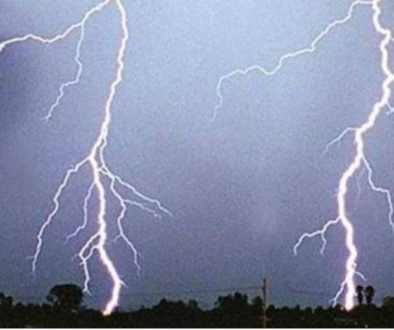Indonesia rejects, India gets 38 loads of hazardous waste
KOLKATA: India seems to have fallen prey to the bustling racket of global waste trafficking. Thirty-eight containers, carrying hazardous and contaminated waste from the US, were allegedly sneaked into the country over the course of a couple of weeks, raising concern among green watchdogs.
The containers, originally shipped for a paper mill in Indonesia, had been seized by Indonesian customs. According to the Basel Convention — which was ratified by Indonesia and India, among others — such containers carrying hazardous waste must be sent back to their countries of origin. But even though the Indonesian authorities claimed they never authorized the containers to be re-exported to Asian countries, these 38 containers made their way to India through two ports, revealed an exposé by Indonesian environment watchdog Nexus3 and the US-based Basel Action Network (BAN).

Between August 24 and September 7, 25 of these containers entered the country through Adani Mundra Port in Gujarat and 13 through Jawaharlal Nehru Port (JNPT) in Maharashtra. Many of the containers were then shifted to Kanpur in Uttar Pradesh by trucks and trains, the exposé reveals. TOI, too, tracked some of these containers and found that at least two of them later reached Agra.
The containers reportedly carried, among other things, plastic waste and other trash like used diapers. And they reached India months after the Centre amended the Hazardous and other Wastes (Management and Transboundary Movement) Rules, 2016, to stop the import of solid plastic waste.
Sources in the Indian ministry of environment, forest and climate change said they were aware of the matter and were looking into it. “An expert panel is being formed to clarify what should be seen as hazardous items,” a senior official of the ministry said.
In their report, Nexus3 and BAN provided the detailed tracking record of some of the containers that entered India and specific times and dates of the arrival of all 38.
When asked about the entry of the 13 containers through JNPT, Vivek Johri, chief commissioner of customs, Mumbai Zone II, sought details of the containers from TOI. But after the details were sent, all messages and phone calls to him went unanswered.
A customs official at Adani Mundra Port, who refused to be named, said he was not aware of 25 containers carrying hazardous waste entering the country through Mundra.
Dharmesh Shah, country coordinator of the Global Alliance for Incinerator Alternatives (GAIA) in India, said: “It is indeed a strange case. Usually the importing country initiates action in cases of illegal shipment, since they are the aggrieved party. Here, India has not even acknowledged the incident, while Indonesia has initiated an inquiry. It raises several concerns regarding our border controls.”
In an immediate reaction to the Nexus3-BAN report, Syarif Hidayat, Indonesian director of international customs, said: “The Indonesian government has never recommended/issued any approval letter for re-exportation of contaminated waste from the United States to other Asian countries.”
But Yuyun Ismawati, a senior adviser to Nexus3, told TOI: “Although the press release issued by the Indonesian customs said the PEB documents (export notification documents) ordered the shipments to go back to the US, the results of container number tracking showed that only 12 containers were returned to the senders in the US. So, some of the returned containers had been allowed to be sold to other traders (not to the US exporters). Each shipment must be equipped with proper paperwork to show its chain of custody. All documents are filled online and done by an agent/surveyor who is hired to do the job. The documents must have been checked by authorities who allowed them to leave the port. All involved in preparing documents knew that the containers were being diverted to another country and not the country of its origin. How it happened must be investigated.”
Days after the exposé, Rosa Vivien Ratnawati, director general of waste management of Indonesia’s environment ministry, said at a press meet: “If there’s illegal traffic, the origin country must accept the trash back.” She also warned Indonesian importers that if they are ordered to send containers of trash back to where they came from, they could be criminally charged if those containers are redirected elsewhere.
In a message to TOI, she said Indonesia would discuss the issue with the Indian authorities. “We will ask our customs to recheck all the documentation and our ministry of environment and forests will coordinate with the customs and the ministry of trade to call the importers and bring them to our law enforcement division for the sanction.”
Jim Puckett, executive director of BAN, said: “The diversion of contraband waste to India that was meant to be returned to the United States deserves serious investigation by the Indian and Indonesian government. Not only does this diversion likely violate Indian legislation banning the import of plastic waste, it appears to have been authorized by the Indonesian authorities in contradiction to their Basel treaty obligations. And these hidden shipments are not just a case of avoiding some bureaucratic trade laws. The ultimate management and disposal of illegal plastic and hazardous waste imports can have severe health consequences due to the kind of pollution they can create.”
Content retrieved from: http://toi.in/Beokqa23/a31gj.



